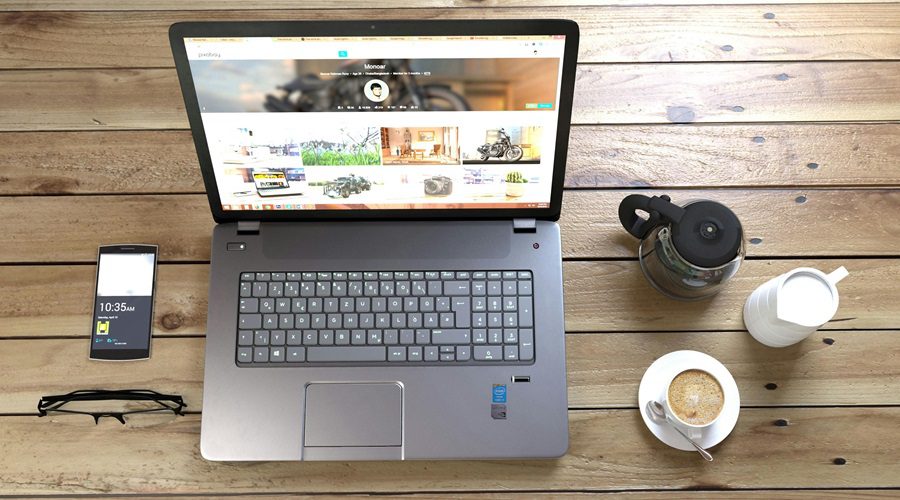
Website vs Social Media: Which is Better for Your Business?
Post Statistics
This post has 1542 words.
This post will take about 7 minute(s) to read.
In today’s digital age, your website acts as your digital storefront. It’s often the first point of contact potential customers have with your brand. A well-designed website can create a lasting positive impression, establishing credibility and professionalism.
When visitors find you through a search engine, they expect to land on a well-organized and visually appealing website. Not having a website can lower your brand’s reputation, making it seem less legitimate. A poorly designed website can be even worse, driving potential customers away.
Social Media: Connecting with Your Audience in Real-Time
Social media platforms are essential for engaging with your audience in real-time. They provide an excellent medium for sharing updates, promotions, and engaging content that can help foster a community around your brand.
However, relying solely on social media can be limiting. Algorithms and platform changes can affect your reach and engagement. While social media is excellent for interaction, it should complement, not replace, a comprehensive online presence which includes a well-designed website.
SEO Benefits: Why Websites Outperform Social Media
Search Engine Optimization (SEO) is crucial for driving organic traffic to your business. Websites offer far greater control over SEO compared to social media platforms. You can optimize your website’s content, structure, and metadata to rank higher in search engine results.
A website allows you to target specific keywords and phrases that your potential customers are searching for. Social media posts, while useful for engagement, do not offer the same level of SEO benefits. Investing in a robust SEO strategy for your website can significantly boost your online visibility.
The Role of Design: Why a Bad Website Can Hurt More Than Help
A poorly designed website can do more harm to your business’ reputation than having no website at all. Bad design can frustrate users, causing them to leave your site and look elsewhere. It can also damage your brand’s reputation, making you appear unprofessional.
Investing in a professional freelance web designer can ensure that your website is not only visually appealing but also user-friendly. Good design enhances the user experience, keeps visitors on your site longer, and increases the likelihood of conversions.
Web Design as a Trust-Building Tool
When it comes to creating a trustworthy online presence, web design is your secret weapon. You know how first impressions count? Well, that’s exactly what your website does for your business.
A well-designed site immediately tells visitors they’re in the right place. But what features specifically help build that trust? Let’s dive into the elements that make all the difference.
Clear and Simple Navigation
Nothing says, “I trust this website” like a layout that’s easy to navigate. When users can find what they need quickly, they feel comfortable exploring more. You don’t want them guessing where to click or how to find important information.
A clean menu, well-organized content, and intuitive design show your visitors that you care about their experience. They’ll stay longer, explore more, and trust that your site has what they’re looking for.
High-Quality Visual Design
If your website looks outdated or cluttered, users might feel uneasy. A modern, visually appealing design signals professionalism and care. When your site looks good, people assume your business is equally high-quality.
You can even sprinkle in custom images or infographics to add a personal touch. Remember, visuals matter, and they help reinforce trust by making your site look polished and professional. Thus us something social media can never achieve.
If you want to learn more about building a better website and why it matters, click here.
Trust Signals: Testimonials, Reviews, and Badges
Ever noticed how websites display testimonials or badges from trusted sources? That’s no accident—it’s a trust-building tool. You can showcase client reviews, industry certifications, or security badges to let visitors know they’re in good hands.
It’s a simple way to prove your reliability without saying a word. People trust other people’s opinions, and when they see positive reviews, they’re more likely to trust you too.
Mobile Responsiveness: Make or Break Trust
With so many people browsing on their phones, a mobile-friendly site is a must. If someone visits your website on their phone and it’s hard to navigate, trust can instantly drop. They might even leave for a competitor with a better mobile experience.
That’s why having a responsive design that adjusts seamlessly to any device is crucial. You’ll keep visitors happy, and they’ll trust you more for making their experience hassle-free.
Fast Loading Speed
Nothing makes users click away faster than a slow-loading website. You’ve experienced it—you wait for a page to load, but it takes forever, so you leave. A slow site can frustrate users and make them doubt your professionalism.
By ensuring your site loads quickly, you send a message that your business is efficient and reliable. Quick loading times equal happy visitors who trust they’ll get what they need without delays.
Secure and Professional URL
Last but not least, your URL matters! Visitors look for that little padlock icon in the address bar to make sure your site is secure. If your site doesn’t have HTTPS, they may think twice before staying. Invest in a secure and professional URL.
It’s a simple but crucial feature that tells users they’re safe when browsing your site. A secure site shows you’re serious about protecting their information.
The Role of Social Proof for Building Trust
In the world of social media, trust can be won or lost in seconds. And nothing helps build trust faster than social proof. When you scroll through a social feed, how often do you find yourself influenced by reviews, testimonials, or recommendations from people you follow?
That’s the power of social proof in action! It’s one of the most effective tools for boosting credibility and trust in your brand. Let’s explore how reviews, testimonials, and influencers play a major role in making your social media presence more trustworthy.
Customer Reviews: Real Feedback in Real Time
You’ve probably noticed that one of the first things people check before buying a product is customer reviews. Whether it’s a quick comment or a detailed testimonial, these reviews matter! Why? Because they come from real users, people just like you.
Social media makes it easier than ever for customers to share their opinions, and potential buyers trust these insights. A glowing review can make all the difference in whether someone clicks “buy” or keeps scrolling. So, make sure you encourage happy customers to leave feedback—it’s the social proof you need to build trust.
Testimonials: Showcasing Real Experiences
Testimonials are like customer reviews, but with a more polished and personal touch. They’re a great way to highlight specific experiences that your customers have had with your brand. Imagine scrolling through social media and seeing someone’s positive experience with a service.
Wouldn’t that make you feel more confident in trying it yourself? That’s the magic of testimonials. They show potential customers that you’ve helped others like them, and that can significantly increase your trustworthiness.
Plus, on social media, testimonials can be shared and re-shared, creating a snowball effect of trust. When you showcase satisfied customers, you’re letting their voices do the heavy lifting, boosting your credibility without being overly salesy.
Influencers: The New Age of Recommendations
Influencers are like the modern-day version of word-of-mouth recommendations. When you see someone you admire using or recommending a product, it automatically makes you more interested. Why? Because you trust their opinion. Influencers, whether they have 1,000 or 1 million followers, have established themselves as credible voices in their niche.
When they vouch for a brand, their followers tend to believe them. Partnering with influencers who align with your brand’s values can open doors to new audiences and build trust instantly. Their followers view them as authentic and relatable, which is why influencer marketing is such a powerful form of social proof. It feels personal and trustworthy.
Social Media vs. Web Design: The Power of Social Proof
So, how does social proof on social media compare to trust-building in web design? While a well-designed website can create an immediate sense of professionalism, social media allows for ongoing, real-time proof that people trust your brand. Both are important, but social media thrives on interaction and engagement.
It’s a space where customers can actively share their experiences, making it easier for others to trust you. In comparison, web design offers a one-time trust boost through visual appeal and functionality, while social media keeps the trust-building conversation alive.
Integrating Both for Maximum Impact: A Balanced Approach
To maximize your business’s online presence, it’s crucial to integrate both a website and social media. Your website serves as the cornerstone of your online identity, while social media platforms help drive traffic to your site and engage with your audience.
A balanced approach ensures that you leverage the strengths of both mediums. Use social media to build relationships and drive engagement, then guide users to your website for more detailed information and conversions. This synergy can significantly enhance your brand’s visibility and effectiveness online.
